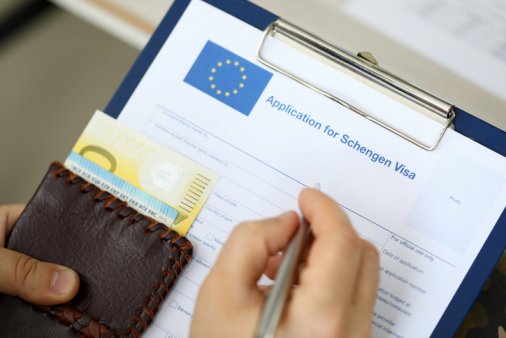What is Schengen Visa Processing Time
Learn how to navigate Schengen visa processing times. Apply early, provide complete documents, and understand key factors to ensure timely approval of your visa.
Understanding Schengen Visa Processing Times
-
Knowing the peak travel seasons, consulate workload and your nationality will help you better anticipate Schengen visa processing times.
-
Apply at least 3 months in advance to avoid processing delays.
-
Providing all required documents correctly will minimize the chance of your application being held for more info.
Going to the Schengen Area opens up doors to some of Europe’s most amazing destinations. But, getting a Schengen visa is a crucial step and requires attention to detail, especially processing time. Knowing the factors that affect Schengen visa processing time is key to ensuring that your travel plans go on schedule.
So here’s what you need to know about the processing time for a Schengen visa and the factors that can help you navigate the process better and increase your chances of getting your visa approved.
What is the Typical Processing Time for Schengen Visa
While individual experiences may vary, below are the general time frames applicants can expect and scenarios where processing will be faster or slower.
Standard Processing Time
The standard Schengen visa processing time is 15 calendar days. Most applicants will get a decision within this timeframe if their application is complete and there are no issues. For frequent travelers or those with a good travel history, the visa can be processed in 7-10 days.
Extended Processing Time
In some cases, the processing time can be extended up to 45 days or even 60 days. This usually happens when the consulate requests additional documents, interviews, or detailed background checks. Security clearance or concerns about the applicant’s travel history are also common reasons for delays. Applications submitted during peak season or to busy consulates may also take longer.
Urgent or Expedited Processing
Expedited processing is available in certain cases, such as medical emergencies, urgent business trips, or family matters. This faster processing is available at an additional fee and will reduce the processing time for Schengen Visa to 3 to 10 days. To qualify, applicants must provide valid reasons and supporting documents such as medical certificates or business invitations, but this is at their discretion. However, not all embassies offer expedited processing, so it is best to inquire beforehand.
Key Factors Influencing Schengen Visa Processing Times
There are several things that determine how long it takes for an application to be processed. Knowing these will help you estimate when you will get your visa.
Time of Year: During peak tourist seasons like summers and winters, or even Christmas and New Year, the embassies receive quite many applications. Processing such high volumes of applications can extend the standard 15-day timeframe to several weeks.
Applicant’s Nationality: Some nationalities may have faster or slower processing due to diplomatic agreements or specific visa policies. Applicants from countries with stricter security checks may have longer wait times.
Administrative Workload of the Consulate: Different Schengen countries have different processing systems and capacities. Busier consulates in major cities may take longer due to higher volume, while smaller offices may process faster due to fewer requests.
Completeness and Accuracy of Documentation: Missing or incomplete documents can extend the processing time by weeks. Be sure to submit all required documents, including financial proof, Schengen travel insurance , accommodation, and itinerary, to avoid additional requests for information.
Type of Visa Applied For: The type of visa (tourist, business, student) you have applied for can also affect the processing time. Short-stay visas are usually processed faster; visas for long-term stays, multiple entries, or residential permits may require additional checks, thus adding to the overall processing time.
Applicant's Travel History: A good travel history, especially with previous Schengen visas, can speed up the process. First-time applicants or those with complex travel history may face additional scrutiny.
Biometric Data Collection: If you are a first-time applicant, you will need to book an appointment to submit your fingerprints. If you have provided your biometric data in the last 5 years, you will usually not require an appointment unless the consulate requests one. Even though the collection of biometric information takes a few minutes, the waiting time for booking an appointment may add to the overall processing time.
Security and Background Checks: Embassies will conduct security checks to ensure that the applicant is not a threat to the country. This step may take longer if there are concerns about the applicant’s background, travel history, or intended purpose of visit.
While these were some important factors that may impact a Schengen visa processing time, applying well ahead of your travel date will help avoid delays. You must check the official website of the embassy or consulate responsible for your area to get the most accurate and up-to-date information on processing times and any country-specific requirements.
Step-by-Step Visa Process Timeline
If your visa processing time exceeds the 15-day window, do the following:
-
Review Application Status: Check any online tracking system provided by the consulate. This will give you an idea of the status of your application.
-
Prepare Documents: Gather all your application details, including receipts, documents submitted, and any previous correspondence with the consulate. This will help in your communication.
-
Contact the Embassy/Consulate: When contacting the embassy/consulate, be polite but firm in requesting an update on the visa status. Provide all the details, including application reference number, passport number, and other personal details. If possible, use email and phone for your inquiries. Some consulates may respond faster through one over the other.
While the processing time for a Schengen Visa is about 15 calendar days, the entire process typically takes approximately four to six weeks from start to finish.
What to Do if Your Schengen Visa is Delayed
You do your best to provide all the requirements for a Schengen Visa, but minor errors or oversights can still occur and cause delays. Or, it could also be factors beyond your control like a high volume of applications during peak seasons or unexpected security checks. But, there are some proactive steps you can take to address and potentially fix the situation.
Steps to Take if Your Visa Processing Time Exceeds the Normal Duration
If your visa processing time exceeds 15 days:
-
Track Your Application: Check any online tracking system provided by the consulate. This will give you an idea of the status of your application.
-
Prepare Application Details: Gather all your application details, including receipts, documents submitted, and any previous correspondence with the consulate. This will help in your communication.
-
Contact the Embassy/Consulate: When contacting the embassy/consulate, be polite but firm in asking for an update on the visa status. Provide all the details, including application reference number, passport number, and other personal details. If possible, use email and phone for your inquiries. Some consulates may respond faster through one over the other.
Understand that embassies get many requests, and it may take time to get a response, but persistence is key.
Practical Tips for Faster Visa Processing
To process a Schengen visa faster, consider the following.
Apply well in Advance
Apply for your Schengen visa at least 3 months before your travel date. Applying early gives time for processing, potential delays, and gathering all documents. Consulates accept applications up to 6 months in advance , so apply as early as possible.
Go for Visa Application Centers (VACs)
Applying directly to the consulate may be faster as you can talk to the staff and address any concerns immediately. But, appointments can be harder to get, or consulates could be busy during peak seasons.
Visa service agencies can make the process easier. They help with document preparation, scheduling of appointments, and tracking of your application. Since there is more appointment availability and better customer service, you will incur an extra service fee. The processing time may still be a bit longer since the applications are forwarded to the consulate after submission.
Ensure Complete and Accurate Documentation
A common cause of visa delays is incomplete or inaccurate documentation. To prevent this, carefully review the specific requirements outlined by the embassy or consulate handling your application. Ensure you have all necessary documents, such as a valid passport, recent photographs, travel itinerary, proof of accommodation, travel insurance, and financial statements.
Schengen Visa Processing Time FAQs
1. How long does it take to process a Schengen visa?
Fifteen days is the standard processing time for a Schengen visa, but this can vary depending on the consulate’s workload, the applicant’s nationality, and additional document requests. In some cases, it can take longer, even up to 60 days, if further security checks or information are needed.
2. Are there ways to speed up Schengen visa processing time?
Yes, you can expedite your Schengen visa application by applying early, ideally 3 months before your trip. You may also inquire about expedited processing for urgent cases. Using a visa service can also make the process faster.
3. What if my visa is denied after a long processing time?
If your Schengen visa is denied, read the denial letter carefully to understand the underlying reasons. You have the right to appeal, but you need to address the specific issues mentioned. Gather additional documents needed and submit your appeal within the given timeframe in accordance with specified procedures. Legal consultation may also be helpful.
4. Apply by how many days before my travel date?
Apply at least 3 months before your intended travel date. Since you can submit applications up to 6 months in advance, applying early will ensure you get your visa in time for your trip. Do not apply any later than 15 days before your travel date, as this is the minimum time required for processing and getting a final decision.
5. Is there a difference in processing time for different Schengen countries?
Yes, processing time can vary between Schengen countries due to the volume of applications, the consulate’s efficiency, and local policies. Some countries have slower processing times during peak seasons, while others have delays due to the high volume of applications. Research the consulate’s average processing time before applying.
Disclaimer: The What is Schengen Visa Processing Time Blog is intended to provide you with entertaining and educational information of a general nature. The articles are for editorial purposes only and are not intended to replace the advice of a qualified professional. Please contact AXA Assistance USA if you have any questions. AXA Assistance USA, Inc.© 2023 All Rights Reserved.

Travel Assistance Wherever, Whenever
Speak with one of our licensed representatives or our 24/7 multilingual insurance advisors to find the coverage you need for your next trip. Contact Here
Related Articles
Schengen for Greencard Holders




